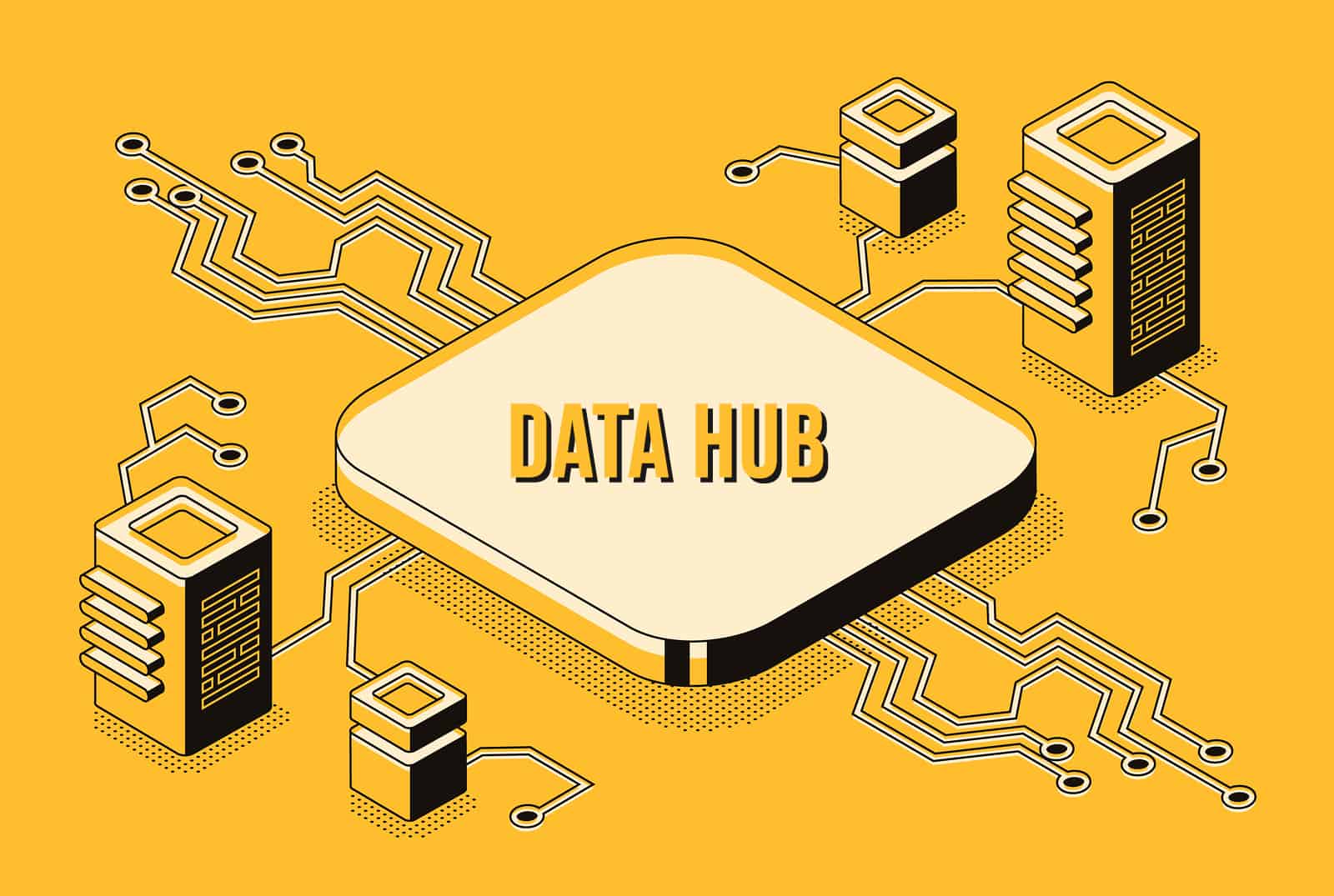What is a Data Hub and Why Should You Care?
Actian Corporation
October 7, 2019

If you are still using point-to-point integrations to move data through your IT environment, then you are spending too much money and missing the opportunities a modern data can provide. A data hub is a centralized service that connects all of your IT systems, whether they be Web applications, IoT devices, SaaS solutions, or core business platforms, such as CRM or ERP that manages the connections to each of the systems and orchestrates the data flow amongst them.
Gartner provides an interesting perspective on what a data hub is- “This is not a technology, but an approach to more effectively determine where, when and for whom data needs to be mediated, shared and then linked and/or persisted. A data hub is a logical architecture that enables data sharing by connecting producers of data (applications, processes, and teams) with consumers of data (other applications, processes, and teams). Endpoints interact, provisioning data into it or receiving data from it, and the hub provides a point of mediation and governance and visibility to how data is flowing across the enterprise.”
Data Hubs Enable Efficiency, Scale, and Agility
Data hubs let you avoid all these headaches and focus on building the technology-enabled business processes that your operations and users need. With a hub, connections are established to each system or component you want to integrate, and that connection is shared with all the other systems that must interact with it. Data services can be exposed and published consistently, enabling better integration of data across systems and reducing the need for data replication to support cross-system business processes. If a credential must be updated, then it occurs within the hub, and all the subscribing applications can continue using the connection. Data hubs also simplify the data governance requirements as the data is persisted at a central location. Data can be transformed and distributed to other endpoints easily, such as cloud data warehouses and analytics BI engines.
Though data hub is defined in this context simply a conceptual, logical or physical node in which mediation (i.e., governance policy reconciliation) is achieved through sharing, linking, storing and exchanging semantically consistent data, it remains very confusing to many companies. This is mostly due to vendors who use the term “hub” to mean warehouse. A hub does not imply a central physical repository. A hub is like a transit station on a rail network; it is not a place where all passengers converge; a hub is a small component, part of the infrastructure; it is not an endpoint like a data warehouse or data lake.
Third-Party Components Are Essential Parts of Your IT Environment
In many modern organizations, technology (application) components are becoming disposable commodities – entering and exiting the environment with little planning or assessment of the impact. Third-party components are becoming a mainstay for supporting business operations. IT staff are challenged to implement them quickly, integrate them into enterprise data models and ensure the frictionless flow of information while simultaneously maintaining data security and integrity. Data hubs excel at the third-party integration challenge. They enable third-party apps to be integrated (both at the data and workflow levels), yet controlled in terms of data access and retention policies.
Don’t Wait, Implement a Data Hub Today!
Data hubs have been in the IT industry for many years. It is only recently, however, with the rapid adoption of cloud services and companies facing hybrid data challenges (data split across cloud and on-premises environments), that hub solutions have become essential parts of the IT operating fabric. If your company does not yet have a hub solution or you are still struggling with legacy point-to-point integrations, then Actian can help. Actian DataConnect provides you with a hybrid integration-platform-as-a-service (IPaaS), so you can implement your hub solution quickly and accelerate value back to your organization.
To learn more, visit www.actian.com/dataconnect.
Subscribe to the Actian Blog
Subscribe to Actian’s blog to get data insights delivered right to you.
- Stay in the know – Get the latest in data analytics pushed directly to your inbox.
- Never miss a post – You’ll receive automatic email updates to let you know when new posts are live.
- It’s all up to you – Change your delivery preferences to suit your needs.